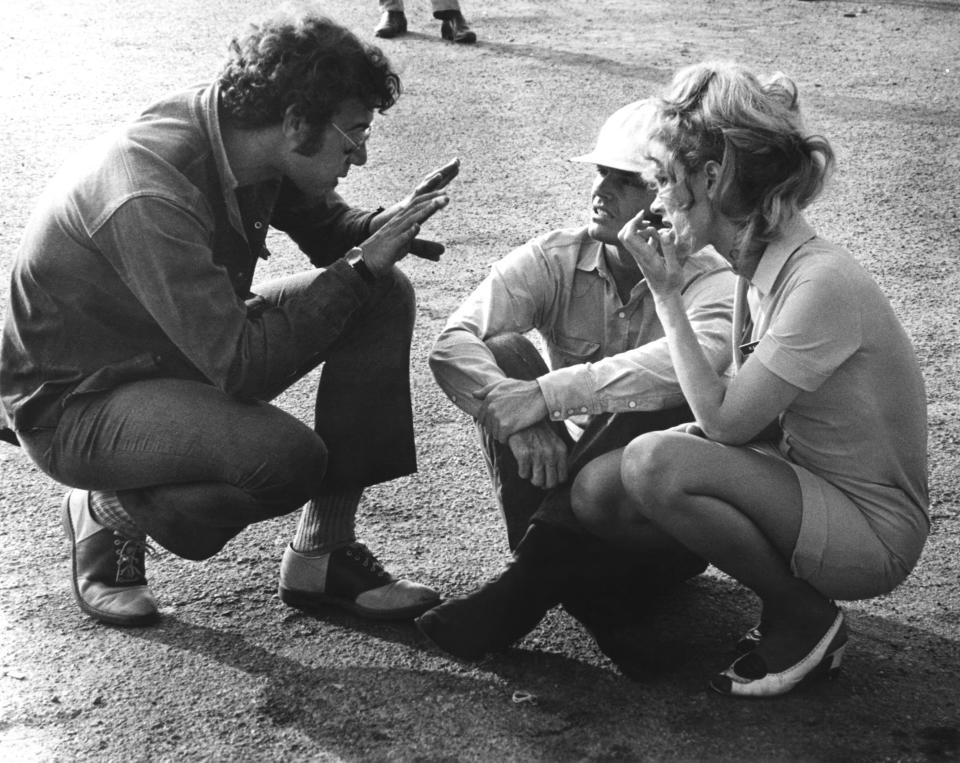Bob Rafelson Dies: Oscar-Nominated Director Of ‘Five Easy Pieces’, Co-Creator Of ‘The Monkees’ Was 89

Bob Rafelson, a giant in the American independent film movement as a writer, director and producer, and later a co-creator of TV’s The Monkees, died Saturday of natural causes at his home in Aspen, CO. He was 89.
His death was confirmed by his ex-wife, Gabrielle.
More from Deadline
Hollywood & Media Deaths In 2021: A Photo Gallery
Rafelson collaborated with Jack Nicholson on seven features including Five Easy Pieces (1970) and The King of Marvin Gardens (1972). He was a producer on Easy Rider.
He was also instrumental in co-creating The Monkees, a television music group that was seen as a Beatles offshoot.
Rafelson was involved in co-writing and producing Five Easy Pieces, and then produced Peter Bogdanovich’s The Last Picture Show (1971). He was Oscar-nominated for both.
He also made his mark as a cultural influencer in television. With Bert Schneider, he created The Monkees, the 1966 NBC show that brought together a young music group recruited in an open casting call with some of the day’s top songwriters to create a show that still resonates. The show won an Emmy in 1967 for outstanding comedy series and made household names of the band: Davy Jones, Mike Nesmith, Micky Dolenz and Peter Tork.
Rafelson directed several episodes, and served as a producer and EP. He also received writing credits on two shows.
The Monkees’ first four albums hit No. 1 on the Billboard 200 album charts, spawning six singles in the top 10 including “Last Train to Clarksville,” “I’m a Believer, “Pleasant Valley Sunday” and “Daydream Believer.”
When the 58-episode run was done on television, Rafelson directed the band in 1968’s Head, marking his film-directing debut as part of a five-picture deal with Columbia.
The film was not critically hailed, and Monkees fans didn’t follow it at first. But it has grown a cult audience over the years, and remains a part of the Monkees’ considerable legacy.
Despite the letdown on Head, Rafelson’s second effort made far more of an impact. That was Easy Rider, which had been filming simultaneously with Head.
The Monkees’ Micky Dolenz Remembers Bob Rafelson And The Role That “Completely Altered My Life”
Rafelson was an uncredited advisor on the film, which was directed by Dennis Hopper and used a screenplay by Hopper, Peter Fonda and Terry Southern. The 1969 film became a landmark of the era, reflecting the counter-culture attitudes of those volatile times at the end of the 1960s.

Everett
But Rafelson’s best was yet to come. His second feature, Five Easy Pieces, featured his screenplay collaboration with Carole Eastman.
The tale of an enigmatic drifter, Five Easy Pieces was an instant hit with critics. Roger Ebert choose it as his best film of 1970, and it was nominated for four Academy Awards. It also gave star Jack Nicholson his second Oscar nomination.
That success led to a wave of independent features including The Last Picture Show; Drive, He Said (1971), the Oscar-winning antiwar documentary Hearts and Minds (1974); and the Rafelson-directed The King of Marvin Gardens (1972), starring Nicholson and Bruce Dern.
They marched into the late ’70s and ’80s with Stay Hungry (1976), with a young Arnold Schwarzenegger, and The Postman Always Rings Twice (1981), which starred Nicholson and Jessica Lange.
Rafelson had a career misstep when he was fired from the 1980 film Brubaker, starring Robert Redford, allegedly for punching a Fox executive.
He returned to the music side in 1986, directing Lionel Richie’s video for the monster hit “All Night Long.”
Later in his career, Rafelson directed the 1987 film Black Widow, starring Debra Winger, and Mountains of the Moon (1990); and two more films starring Nicholson in Man Trouble (1992) and Blood and Wine (1997). He also helmed No Good Deed (2002), leaving the business after that.
Survivors also include his sons with Gabrielle, Ethan and Harper; son Peter; daughter-in-law Karen; and a nephew.
Patrick Hipes contributed to this report.
Best of Deadline
2022-23 Awards Season Calendar - Dates For The Oscars, Emmys, Grammys, Guilds, Festivals & More
NFL 2022 Schedule: Primetime TV Games, Thanksgiving Menu, Christmas Tripleheader & More
Sign up for Deadline's Newsletter. For the latest news, follow us on Facebook, Twitter, and Instagram.

